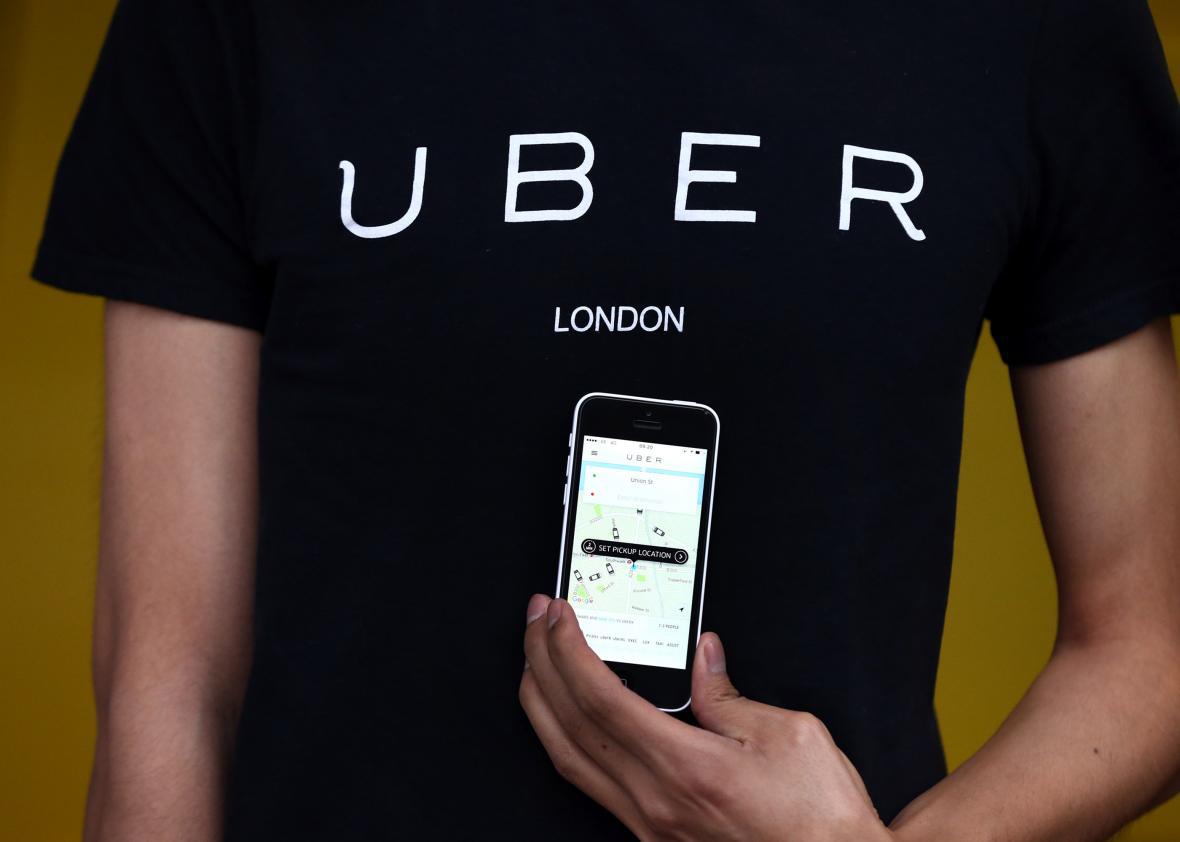It’s been a rough winter for ride-hailing app company Uber. First it was accused of strike-breaking—just for picking up passengers during a taxi strike!—then CEO Travis Kalanick had to quit President Trump’s advisory board when users objected to working with the new president for some reason. Now, on Sunday, former Uber employee Susan Fowler published a detailed, horrific story of structural sexism at the company in a 3,000-word blog post on her personal site. (That’s “employee,” not “independent contractor”—Fowler was an engineer, not a lowly driver.)
According to Fowler’s account, on her first day after being assigned to an engineering team, her manager propositioned her via company chat. Fowler reported this to HR but was told that since he was “a high performer,” the company wouldn’t punish him for a first offense. Then it put her on the horns of an unpleasant dilemma:
I was then told that I had to make a choice: (i) I could either go and find another team and then never have to interact with this man again, or (ii) I could stay on the team, but I would have to understand that he would most likely give me a poor performance review when review time came around, and there was nothing they could do about that. I remarked that this didn’t seem like much of a choice … but they told me the same thing again and again. One HR rep even explicitly told me that it wouldn’t be retaliation if I received a negative review later because I had been “given an option.”
She chose to transfer, though she didn’t want to, but things didn’t improve. Fowler alleges that as she got to know other women at the company, she discovered that it wasn’t exactly her ex-manager’s “first offense”; other women who reported him for separate incidents were also told their cases were “first offenses.”
Some of Fowler’s other allegations seem like the standard miserable Amazon-style dogfight Silicon Valley seems to favor—at least for employees high enough up the food chain to qualify for the dogfights—but with a twist. Female engineers were so rare at Uber, Fowler writes, that it was politically advantageous for her manager to keep her on his team. So when she attempted to transfer teams, he allegedly changed a previously filed performance review from positive to negative so that she wouldn’t qualify for the transfer.
Then there’s the matter of the leather jackets. Uber allegedly promised to give all the employees in Fowler’s division leather jackets—letting everyone try them on and choose their size—before only buying them for the men. The company, which according to Fowler was losing female engineers at a rapid pace—she writes that her part of the company dropped from 25 percent to 6 percent women while she was there—didn’t have enough female employees anymore to qualify for a bulk discount on women’s jackets. So Uber simply didn’t buy them any, which a director told her had been done in the name of equality: It wouldn’t be fair to buy the women jackets that cost more.
On complaining about this absurd position on leather jackets, she was called to HR for a nightmarish meeting in which she was asked, by her account, “if I had noticed that *I* was the common theme in all of the reports I had been making, and that if I had ever considered that I might be the problem.” HR also allegedly claimed to have no records of incidents she had reported, although Fowler writes that she had email records proving this wasn’t true. Within a week, her manager (who apparently reported to the recalcitrant leather jacket purchaser) allegedly called her in for an even worse meeting:
He told me I was on very thin ice for reporting his manager to HR. California is an at-will employment state, he said, which means we can fire you if you ever do this again. I told him that was illegal, and he replied that he had been a manager for a long time, he knew what was illegal, and threatening to fire me for reporting things to HR was not illegal. I reported his threat immediately after the meeting to both HR and to the CTO: they both admitted that this was illegal, but none of them did anything. (I was told much later that they didn’t do anything because the manager who threatened me “was a high performer”).
Fowler’s story of a company structure that protected high performance harassers got the #deleteUber hashtag trending again. Uber CEO Travis Kalanick, by now no stranger to rapidly responding to PR disasters, issued a statement within a few hours pledging an “urgent investigation.” Kalanick wrote that the situation Fowler described was “abhorrent and stands against everything Uber stands for and believes in. … We seek to make Uber a just workplace and there can be absolutely no place for this kind of behavior at Uber.” Board member and just workplace-enthusiast Arianna Huffington is also on the case:
As for Fowler, she left Uber in December for online payment company Stripe. Presumably, she took a cab.
